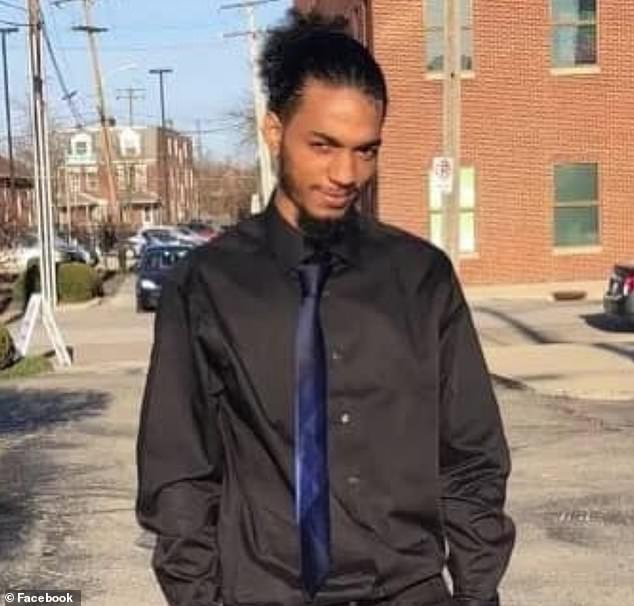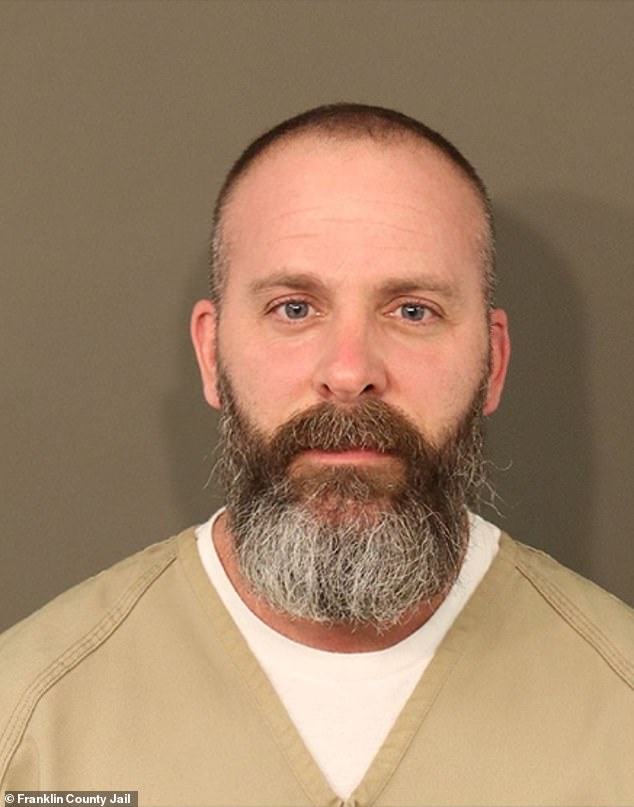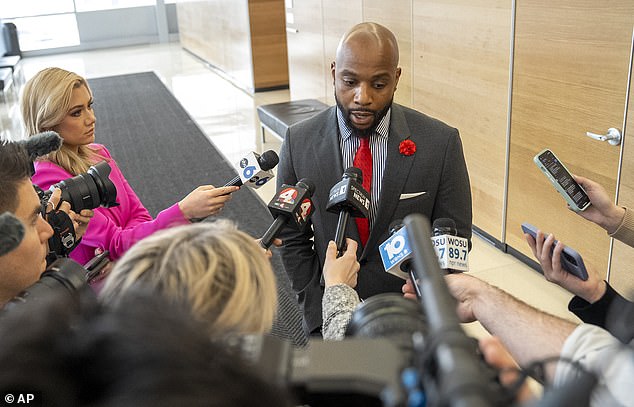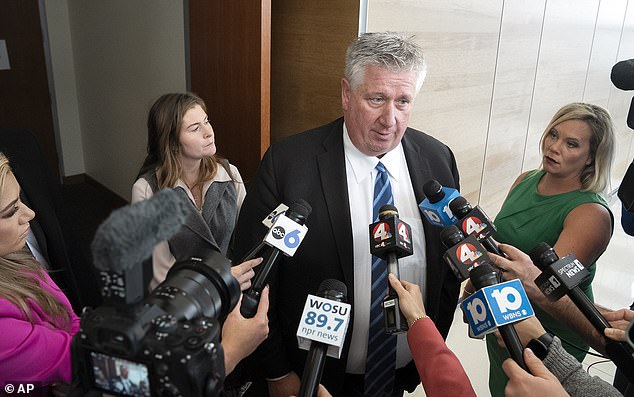Judge declares mistrial in case of cop charged with murdering black man Casey Goodson Jr. by shooting him five times in the back after jury fails to reach a verdict
An Ohio judge has ruled in the death of Casey Goodson Jr. nullified by a former sheriff’s deputy after the jury failed to reach a verdict. This ended a tumultuous procedure in which four jurors were dismissed.
Jason Meade was charged with murder and reckless homicide in the killing of Goodson Jr. in December 2020 in Columbus.
Meade, who is white, shot Goodson six times, five in the back, as the 23-year-old man tried to enter his grandmother’s home.
Judge David Young had already declared a mistrial Friday morning, but rescinded it minutes later, praising the jurors for their hard work.
Jurors again came to Young to say they disagreed, and he instructed them to keep trying. About two hours later, he declared a final mistrial as jurors — some of whom were crying — said they were deadlocked.
Jason Meade was charged with murder and reckless homicide in the killing of Casey Goodson Jr. in December 2020 in Columbus. He appeared Friday morning in Franklin County Common Pleas Court in Columbus, Ohio

Casey Goodson, Jr., 23, was shot six times, including five times in the back, as he tried to enter his grandmother’s home on December 4, 2020

Former Franklin County Sheriff’s Deputy Jason Meade was charged with murder and reckless homicide in the fatal shooting
Young will meet with prosecutors and defense attorneys in the near future to decide how to proceed with the case, but it was not clear Friday when that would happen.
Sean Walton, an attorney for the Goodson family, told reporters that while there was a mistrial, there were still jurors who clearly considered all the evidence and believed Meade was guilty.
“There were jurors at the time who clearly felt that Jason Meade was responsible for the unjustified murder of Casey Goodson. And that should make a statement,” Walton said.
Walton said the nearly four years since Goodson’s death have been a “rollercoaster of extremes” for his family.
Meade’s attorney, Mark Collins, expressed gratitude for how hard the jurors worked to be “as fair and impartial as possible,” and said he and Meade are “ready to go” if there is a second trial.
“This is just the first step in the process,” Collins said.
The special prosecutors handling the case made no comment before leaving the courthouse.
Franklin County Prosecutor G. Gary Tyack’s office issued a news release saying their thoughts are with the Goodson family, and they will decide whether to retry the case after review.
Jurors also left the courthouse without speaking to reporters.
Meade testified that Goodson waved a gun at him as the two drove past each other, so he chased Goodson because he feared for his life and the lives of others.
He said he ultimately shot Goodson in the doorway of his grandmother’s home because the young man turned toward him with a gun.
Goodson’s family and prosecutors have said he was holding a sandwich bag in one hand and his keys in the other when he was fatally shot. They do not dispute that Goodson may have been carrying a gun and note that he was licensed to carry a firearm.
Goodson’s gun was found on his grandmother’s kitchen floor with the safety engaged.
There is no body camera video of the shooting, and prosecutors have repeatedly claimed that Meade is the only person who testified that Goodson was holding a gun. Meade was not wearing a body camera.

Attorney Sean Walton speaks to the media on behalf of Casey Goodson Jr.’s family. after a mistrial was declared in the murder case on Friday

Attorney Mark Collins speaks to reporters as co-counsel Kaitlyn Stephens stands nearby
During closing arguments on Wednesday, prosecutors said Meade’s claims that Goodson posed a threat were simply not credible. Defense attorneys maintained that the evidence in the case was consistent with Meade’s testimony.
The jury was restless throughout the trial.
One juror was dismissed and an alternate was elevated to the main panel during testimony, and three other jurors were dismissed and replaced with alternates during deliberations, forcing the jury to start over several times.
Court officials have not said why the jurors were removed, but they could be dismissed for a number of reasons, including if they become ill, investigate the case outside the deliberation room or talk about it to someone outside the court.
